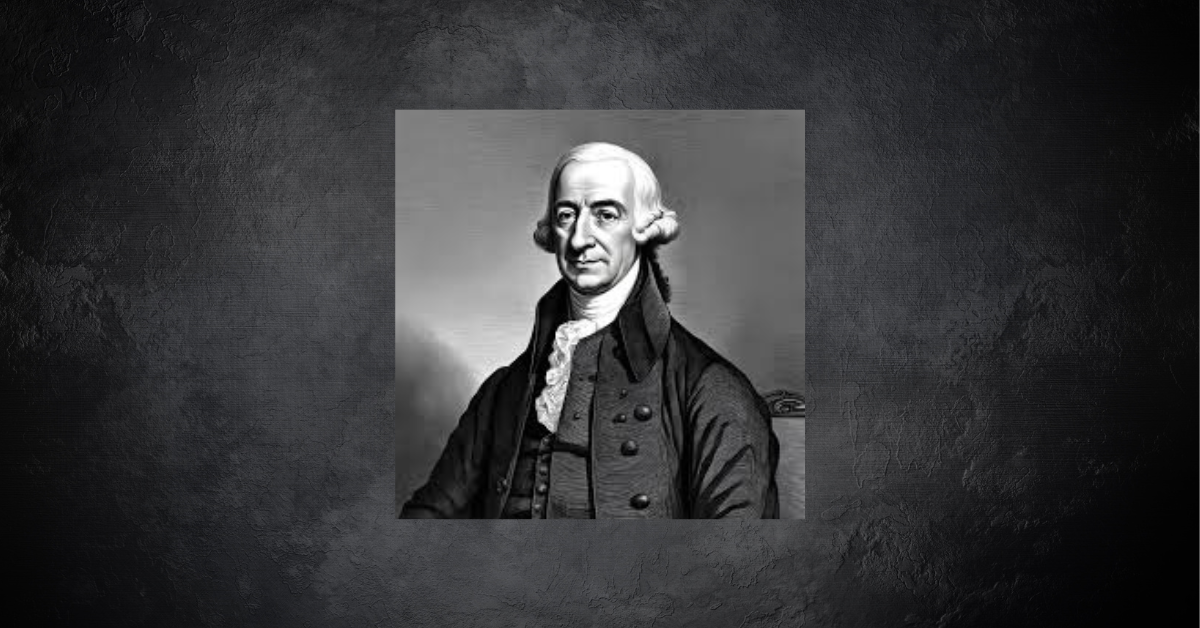Adam Smith, often referred to as the “Father of Economics,” laid the foundation for classical economics with his groundbreaking ideas on free markets and the division of labor. His seminal work, The Wealth of Nations, published in 1776, not only redefined economic thinking in his time but also continues to influence global economic policies today. Through his exploration of human nature, market dynamics, and self-interest, Smith laid the groundwork for modern capitalism.
Early Life and Education
Born in 1723 in Kirkcaldy, Scotland, Adam Smith was a child of the Scottish Enlightenment. From an early age, Smith displayed a voracious intellectual curiosity, a trait that would later shape his academic and philosophical pursuits. After studying at the University of Glasgow, where he was exposed to moral philosophy, Smith moved on to Balliol College, Oxford, where he spent six years refining his intellectual foundation, albeit dissatisfied with the rigid curriculum.
Upon returning to Scotland, Smith began his teaching career in Edinburgh, eventually securing a professorship in moral philosophy at the University of Glasgow. During this time, he explored a wide range of topics—from ethics to government—and gradually developed his ideas on economics.
The Birth of Modern Economics: The Wealth of Nations
Smith’s An Inquiry into the Nature and Causes of the Wealth of Nations is hailed as the first comprehensive work on political economy. Published in 1776, this monumental text dissected the mechanics of capitalism, explaining how self-interest and competition drive economic prosperity.
One of Smith’s most famous concepts is the “invisible hand,” a metaphor suggesting that individuals seeking their own self-interest inadvertently contribute to the public good. In Smith’s view, when individuals pursue personal profit, they help allocate resources efficiently, creating benefits for society as a whole.
Smith also advocated for limited government intervention, arguing that markets are self-regulating. He believed that the government’s role should be confined to maintaining order, enforcing contracts, and providing public goods like defense and infrastructure. His insights laid the foundation for the free-market principles that dominate global economics today.
Division of Labor and Productivity
Another key contribution from The Wealth of Nations is Smith’s discussion on the division of labor. He argued that by breaking down complex tasks into smaller, specialized ones, workers could become more efficient and productive. Smith famously used the example of a pin factory, where one worker might be able to make only a handful of pins a day, but when the labor was divided among workers performing specialized tasks, productivity soared to thousands of pins per day.
Smith’s exploration of labor productivity was revolutionary, influencing industries worldwide and serving as the blueprint for the Industrial Revolution.
Moral Philosophy and Sympathy
While Adam Smith is best known for his economic theories, his earlier work, The Theory of Moral Sentiments, delved into human behavior and morality. Published in 1759, this book explored the concept of “sympathy” as the cornerstone of moral judgment. Smith argued that humans naturally care about others’ well-being and make decisions based on both self-interest and empathy.
This moral framework played a crucial role in shaping his later economic thought. Smith believed that, while people act in their self-interest, they are not purely selfish beings. His ideas suggest that markets function best when individuals are guided by both their self-interest and their intrinsic sense of morality.
Legacy and Influence
Adam Smith’s ideas have had a profound impact on economic thought and policy for over two centuries. From the Industrial Revolution to modern capitalism, his theories have shaped industries, governments, and societies. His views on free markets and the division of labor remain foundational to modern economics, influencing policymakers, academics, and business leaders alike.
In the 21st century, Smith’s ideas continue to inspire debates about the role of government in markets, income inequality, and the ethical dimensions of capitalism. His influence extends far beyond economics, touching on ethics, philosophy, and political theory.
Conclusion: A Lasting Intellectual Legacy
Adam Smith’s intellectual contributions transcend economics; they provide insights into human nature and the broader workings of society. By advocating for free markets, the division of labor, and the power of self-interest, Smith revolutionized our understanding of economic systems. His legacy remains as relevant today as it was in the 18th century, proving that his ideas are not just theoretical musings but enduring principles that continue to shape our world.



